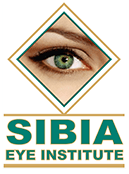Eyelid Surgery FAQ
Frequently Asked Questions and Answers About Eyelid Surgery
Will insurance cover my eyelid surgery?
What are the risks of surgery?
As with any other surgery, eyelid surgery carries a small risk of infection and bleeding. Blindness due to bleeding in the eye socket has been reported to occur following eyelid surgery (both blepharoplasty and ptosis repair). The incidence of this extremely rare complication has been calculated to be 0.005% (5 thousandths of 1 percent; Ophthal Plast Reconstr Surg. 2004 Nov; 20(6):426-32)
Some patients notice that their eyes feel more dry after eyelid surgery. This can be controlled with lubricating eyedrops and other treatments.
Because surgery is not an exact science and healing is not completely predictable, revision may be necessary, though it is unlikely.
How long will it take to recover?
Expect to be bruised and swollen after surgery. Different people heal at different rates, but about 70% of the swelling and bruising is gone after one week.
About 90% of the swelling and bruising is gone after two weeks. After two weeks, it is often difficult to tell that a patient has had eyelid surgery.
When will I be able to return to work?
People undergoing only upper eyelid surgery generally feel comfortable returning to work after 1 to 1½ weeks. People undergoing lower lid surgery alone or four lid surgery often take 1½ to 2 weeks to return to work.
When will I be able to resume normal activities?
You will need to avoid strenuous activity for at least one week after surgery, but normal household activities such as reading, watching TV, and computer work are all acceptable. You may resume gentle exercise one week after surgery and full exercise two weeks after.
Will I be asleep for the surgery?
No. Anesthetic will be injected in your eyelids to eliminate pain and sedatives will be given to help you relax, but you will not be unconscious.
In an ambulatory surgery center, sedation will be given by vein and will be so powerful that you will not feel the numbing injections.
Will the surgery be painful?
Although you may feel a pressure sensation during parts of the surgery, severe pain is very unlikely. Some additional injections may be necessary during the procedure to maintain numbness.
How much pain will I have after surgery?
Surprisingly little. The vast majority of patients need no more than acetaminophen (Tylenol), and most do not even need that.
Will I have visible scars?
No. The incisions for upper eyelid surgery are created in the crease of the eye and will heal with minimal scaring.
When will I need to be seen again?
You will be seen one day, one week, and one month following your eyelid surgery. We are happy to see you more frequently if you have any concerns you would like us to address.
Will the stitches need to be removed?
At your first postoperative visit the surgeon will tell you whether your sutures are dissolvable or whether they need to be removed.
If the sutures need to be removed this is generally done at the one week post operative visit.

